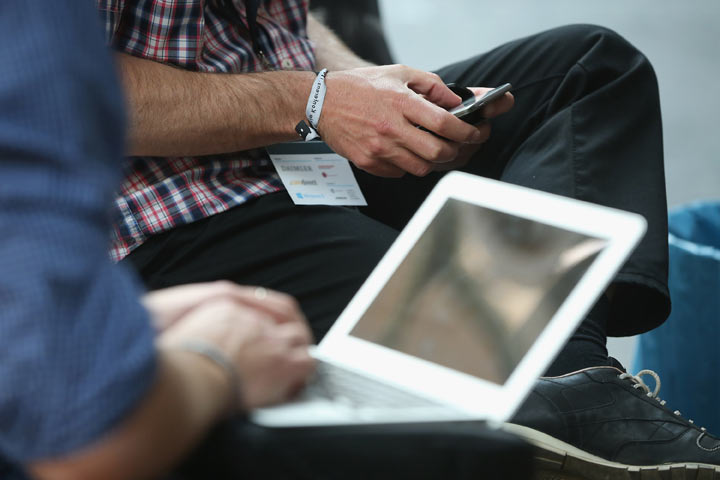TORONTO — Sitting at the dinner table responding to work emails on a smartphone may be jeopardizing more than your relationships, it may be taking a toll on your health.

With constant emails, text messages and working around the clock, we’re an obsessed, distracted, and time-strapped society. And now a British occupational therapist suggests that there are “seven deadly email sins” that may be hurting employees’ mental health.
“Back in the dial-up era, when going online had a cost implication, most people checked email maybe once a day and often responded as soon as they read them. Now, with broadband and 3G, unlimited numbers of messages can be streamed through smartphones at any time of the day or night,” Dr. Emma Russell, a researcher at Kingston University London, said.
READ MORE: Work-life balance, job insecurity key mental health factors in the workplace: study
Her round-up of email sins that aren’t as productive as they seem include:
- Ping pong – constant emails back and forth creating long chains
- Emailing out of hours
- Emailing while in the company of other people
- Ignoring emails completely
- Requesting read receipts
- Responding immediately to an email alert
- Automated replies
Some of the sins seem obvious — emailing outside of work hours doesn’t give employees time to shut off and unwind — but others have their negative effects, too, Russell says.
Take email ping pong, for example: a very long chain of emails builds up, there’s an incessant need to respond, and the back and forth is hated by many of the email recipients.
Her findings are based on analyzing 28 email users in various companies to see which habits helped and hindered their working lives.
“Some workers became so obsessed by email that they even reported experiencing so-called phantom alerts where they think their phone has vibrated or bleeped with an incoming email when in fact it has not,” Russell said.
READ MORE: Mental health leaves cost Canadian economy $51 billion: study
Others wouldn’t leave their work spaces unless they had their smartphone physically in hand so that they could still be reached.
Russell said the seven habits have potential to be positive as long as they’re used in moderation. Without some policing, they could be negative.
“This research reminds us that, even though we think we are using strategies for dealing with our email at work, many of them can be detrimental to other goals and the people we work with,” Russell said.
Her findings were presented at the British Pyschological Society’s annual conference. They back up other studies on workplace efficiency that time and time again suggest that emails and meetings draw employees away from their tasks at hand and leave them trying to regain focus.
carmen.chai@globalnews.ca
Follow @Carmen_Chai




Comments